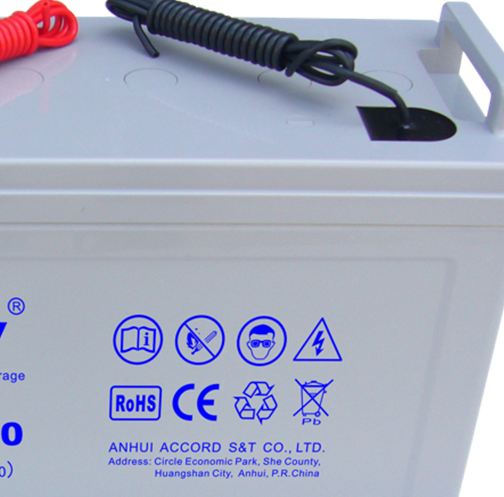When using lithium-ion deep cycle Marine batteries, it is necessary to consider the technical performance indicators of the battery, including energy density, charge and discharge cycle life, self-discharge rate, charge and discharge efficiency, operating temperature range, etc. Energy density determines the energy storage capacity of a battery, and generally speaking, the higher the energy density, the more energy a battery of the same volume or weight can store. Charge and discharge cycle life refers to the number of times the battery can be charged and discharged, without reducing the battery capacity of a certain percentage of the case, the more times, the longer the battery life. The self-discharge rate determines the degree of loss when the battery is stored, and a low self-discharge rate means that the battery can maintain a high remaining capacity after a long time of storage. The charge and discharge efficiency reflects the energy loss of the battery during the charge and discharge process, and the higher the efficiency, the more fully the energy utilization. The operating temperature range affects the stability and safety of the battery in different environments.

security is Marine lithium ion deep cycle battery of important factor. The battery that meets the safety performance requirements can work reliably in a variety of complex environments, and in the event of an abnormal situation, it has overcharge protection, overdischarge protection, short circuit protection, high temperature protection and other functions to prevent the battery from overheating, fire or explosion. In addition, a good structural design can ensure that the battery can still work stably when it is subjected to physical damage such as impact and extrusion. In the Marine environment, the battery should also have good waterproof and corrosion resistance to ensure long-term use in wet and salt spray environments.
Compatibility and maintainability are also an important part of the technical requirements for lithium-ion deep cycle Marine batteries. The battery system should be able to integrate seamlessly with other electrical systems on the ship, including use with chargers, inverters, monitoring systems, etc. Compatible batteries simplify installation and reduce the complexity of system configuration and maintenance. Maintainability determines the ease of maintenance during battery use. A good Marine lithium-ion battery design should consider the ease of inspection, repair, or replacement of cells or modules to reduce long-term use costs and ensure the continuous and stable operation of the system.
In summary, lithium-ion deep cycle Marine batteries are designed and implemented to meet strict technical specifications to ensure that the batteries provide efficient energy output while maintaining the highest level of safety and reliability. With the continuous progress of technology and the continuous expansion of market demand, it is expected that lithium-ion deep-cycle Marine batteries will play a more important role in energy storage systems in the future.